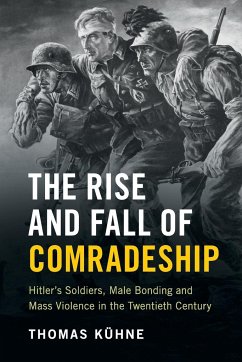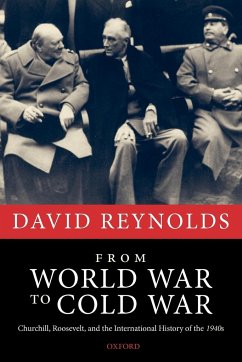
Stalingrad to Berlin
The German Defeat in the East - History of the Turning Point in World War II
Versandkostenfrei!
Versandfertig in 6-10 Tagen
25,20 €
inkl. MwSt.

PAYBACK Punkte
0 °P sammeln!
Stalingrad to Berlin is a pivotal anthology that encapsulates the significant military campaigns of World War II from the Eastern Front perspective, focusing on the dramatic shift from Stalingrad's gritty devastation to Berlin's crushing fall. This collection masterfully traverses a wide range of literary styles, including vivid historical accounts and analytical narratives, offering readers an immersive exploration of one of history's most impactful periods. The anthology's richness is in its diversity, with standout pieces that capture the intricate tactics and human resilience that defined ...
Stalingrad to Berlin is a pivotal anthology that encapsulates the significant military campaigns of World War II from the Eastern Front perspective, focusing on the dramatic shift from Stalingrad's gritty devastation to Berlin's crushing fall. This collection masterfully traverses a wide range of literary styles, including vivid historical accounts and analytical narratives, offering readers an immersive exploration of one of history's most impactful periods. The anthology's richness is in its diversity, with standout pieces that capture the intricate tactics and human resilience that defined the era, seamlessly woven together under the insightful curatorship of a collective ensemble of military historians. The contributors, led by the expertise of the U.S. Army Center of Military History and the distinguished military historian Earl F. Ziemke, have brought to the fore the narratives of bravery, strategy, and the harsh realities of war. Their collective scholarship provides a panoramic view of World War II's Eastern Front, rooted in diligent research and a profound understanding of military history. This anthology aligns with historical analyses and military studies, offering unparalleled insights into the strategic complexities and human dynamics that influenced the outcome of the war. Readers are invited to immerse themselves in Stalingrad to Berlin for its exceptional educational value and comprehensive breadth of perspectives. This anthology stands as a testament to the diverse voices and insights that converge to present a multifaceted dialogue on World War II's Eastern Front. Through the pages of this collection, readers can access a mosaic of historical perspectives, gain a deeper understanding of military strategy, and reflect on the inherent complexities that shaped an era. It is a compelling resource for those eager to enrich their knowledge and engage with the rich tapestry of narratives that this anthology offers.












